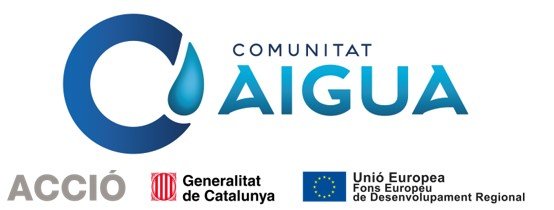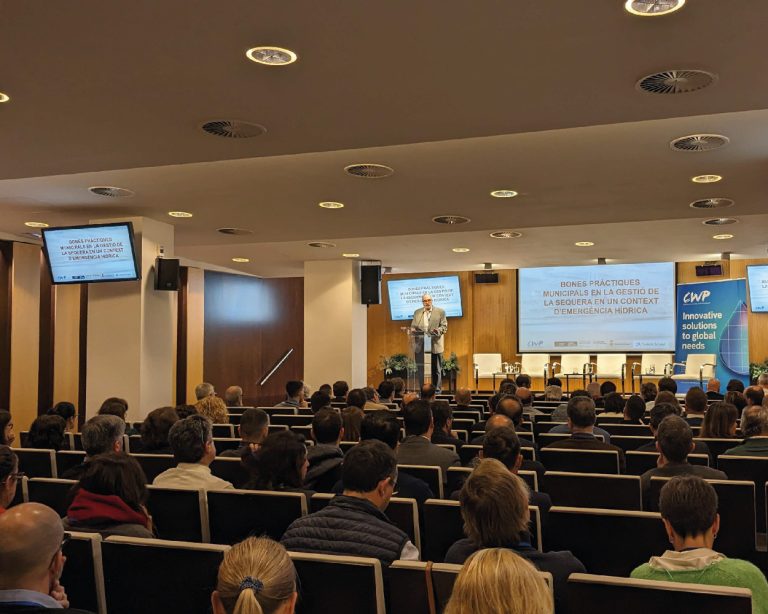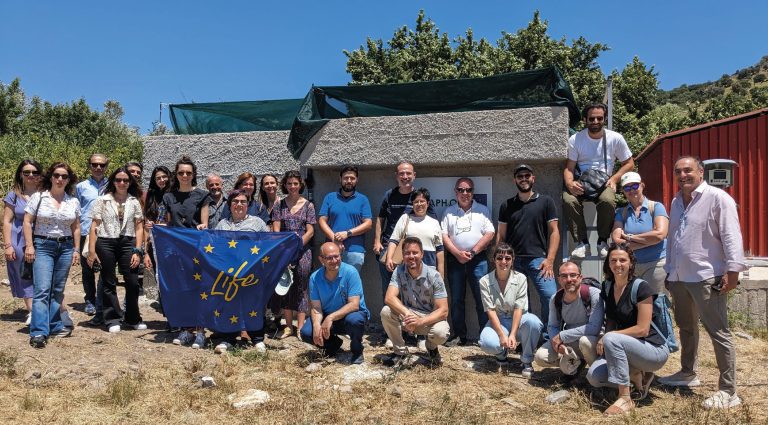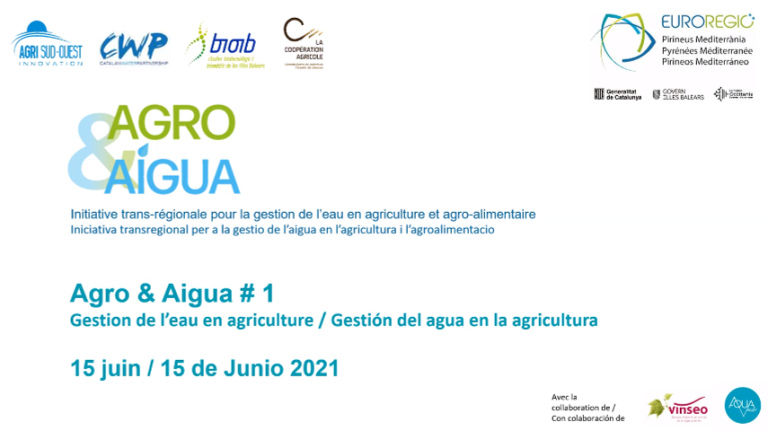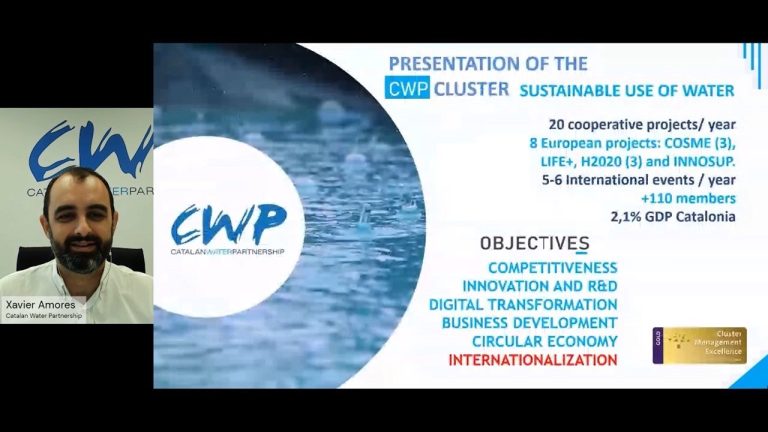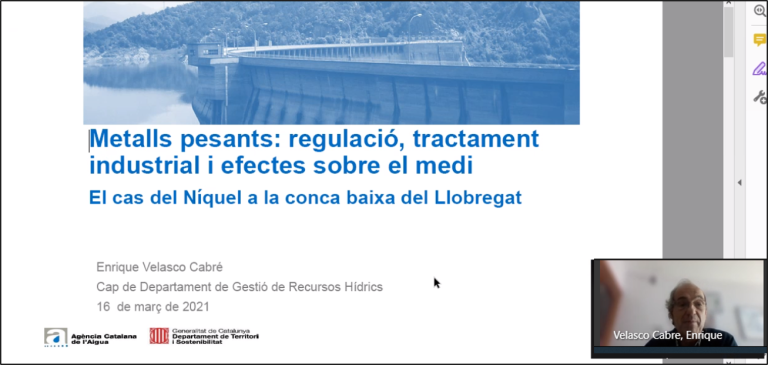SIX MAJOR PROJECTS DEVOTE 12 MILLION EUROS TO PROMOTING THE CIRCULAR ECONOMY AND SMART WATER MANAGEMENT IN CATALONIA
- More than 55 companies, technology and research centres, universities and associations have carried out research and innovation projects in water management within the RIS3CAT Water Community, accredited by ACCIÓ.
- Coordinated by Eurecat, the RIS3CAT Water Community has involved an investment of 12 million euros in four years.
- Innovations have focused on the promotion of the circular economy in water treatment, monitoring and decision support for water quality and the development of technology for intensive sectors.
More than 55 companies, technology and research centres, universities and associations have carried out six research and innovation projects in water management as part of the RIS3CAT Water Community, which have involved an investment of 12 million euros over four years to promote the circular economy in water treatment, monitoring and decision support for water quality and the development of technology for intensive sectors.
The CWP has coordinated the WATERTUR project, in order to promote innovative technologies applicable to the tourism sector and to achieve greater sustainability and intelligence in wastewater treatment systems, recreational water and the calculation of water consumption.
Solutions to these challenges have been specifically addressed in the following projects: Digestake, led by the University of Girona-Lequia; Eflucomp, Regireu and Imaqua, coordinated by Eurecat; Elde, led by the Universitat Politècnica de Catalunya-INTEXTER; and Watertur, led by the Catalan Water Partnership.
Led by the Eurecat technology centre, the RIS3CAT Water Community will conclude its activity this April with a balance sheet “focused on establishing synergies between companies, boosting research and energising the sector, to guarantee the health and well-being of people and the environment, reduce the cost of water management, conserve the natural resource and transform management models towards a circular economy”, stresses Xavier Martínez Lladó, director of Eurecat’s Water, Air and Wastewater Unit.
Its implementation “has enabled the water sector to prepare to meet the economic, environmental and social challenges of the future, acquiring the skills and developing the services and products needed to respond to current and future problems related to water management. “Martínez Lladó adds that “it has also served to develop products and solutions that have to be internationalised and exported to other countries”.
Specifically, the DigesTake project has investigated the valorisation of liquid and gaseous effluents from the anaerobic digestion of urban sewage treatment plant sludge. To this end, five pilot plants and a prototype have been set up to take advantage of the high nutrient content of these effluents, mainly carbon, nitrogen, phosphorus and potassium, to obtain agricultural fertilisers and convert the carbon dioxide from the biogas into chemical products with added value.
On the other hand, the Regireu project has allowed the generation of new knowledge and the development of innovative and competitive technologies in the field of wastewater regeneration. Among the different technologies validated in the project, an innovative industrial wastewater treatment system has been validated, combining mobile sludge technologies with a membrane reactor system that has doubled the capacity and reduced energy consumption by 40 per cent compared to conventional systems.
The IMAQUA project has focused on the development of innovative tools for the management of water quality and quantity in distribution networks. Within the framework of the project, physical solutions have been developed for on-line monitoring of specific pollutants such as passive ceramic samplers and optical technology. Digital solutions have also been developed to predict the behaviour of distribution networks and the evolution of water quality within them. The project’s technologies have been demonstrated in the Sabadell water distribution networks and in a segment of the Barcelona network, achieving a 10 per cent reduction in the uncontrolled flows in these networks.
The treatment of industrial effluents using electrochemical technologies has been the focus of the ELDE project, where effluents from the chemical, paint and paper sectors have been treated, achieving reductions of more than 70 per cent of the organic matter content of the effluents and completely eliminating colour and terbose.
The drive to implement smart technology for water management in hotel establishments has been the focus of the WATERTUR project, which has been able to demonstrate the technologies of anaerobic membrane bioreactor and vertical walls coupled to bioelectrochemical systems to treat the sector’s effluents, recovering energy through the production of biogas. In addition, it has developed a tool for the intelligent control of swimming pool water and has patented a web-based tool for assessing the environmental impact of hotel activity.
EFLUCOMP has researched and applied technologies that allow the optimal treatment of effluents of complex composition, i.e. wastewater with very high salinity, presence of toxic pollutants or organic matter that is difficult to remove. These effluents are characteristic of sectors that generate wastewater intensively, such as hospitals, the petrochemical industry, desalination plants, waste abstractors and the metallurgical and mining industry, among others.
The RIS3CAT Water Community is one of the RIS3CAT Communities accredited by the Generalitat de Catalunya through ACCIÓ -the agency for business competitiveness-, a strategy that has a budget of 24 million euros financed by the European Regional Development Fund (ERDF) of the European Union. On 20 May, the Final General Assembly of the RIS3CAT Water Community was held with the presentation of the results obtained in the 6 projects of the Community’s action plan. The RIS3CAT Water Community ended its activity this April after 4 years of its implementation. The RIS3CAT Water Community projects have focused on the circular economy in water treatment, monitoring and decision support for water quality and the development of technology for intensive sectors.
